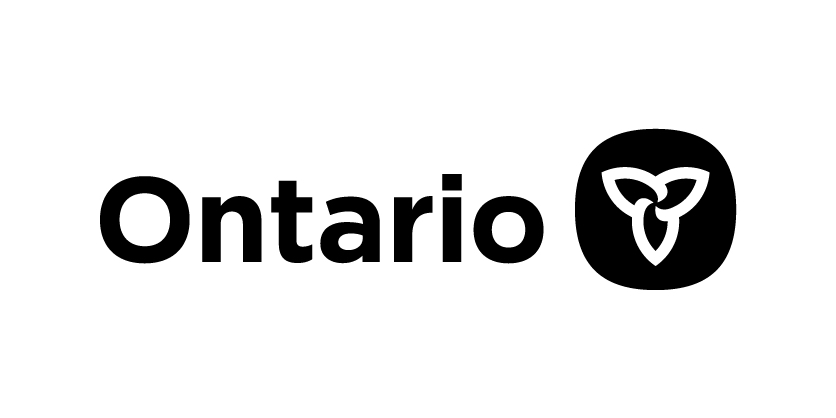Ontario Investing Nearly $1.3 Billion to Stabilize Colleges and Universities
February 26, 2024

Province maintaining tuition fee freeze to keep costs down for students and parents
The Ontario government has introduced a suite of measures to stabilize the province’s colleges and universities, including nearly $1.3 billion in new funding, while maintaining the tuition fee freeze to keep costs down for Ontario students and parents. The province is also introducing legislation that would, if passed, support student mental health, safe and inclusive campuses and allow for increased transparency of fees. This suite of measures also includes initiatives that will help connect students to rewarding careers to help build Ontario’s skilled workforce.
“It’s never been more important to keep costs down for students and parents,” said Jill Dunlop, Minister of Colleges and Universities. “Instead of burdening hard-working families with higher tuition, we’re making historic investments to stabilize colleges and universities. We’re taking action to make fees more transparent. We’re supporting student mental health, fostering safer campuses and preparing students for rewarding careers.”
To support students and their families, Ontario is extending the tuition fee freeze for publicly assisted colleges and universities for at least three more years. Institutions will be able to increase tuition by up to five per cent for out-of-province domestic students. At the time the freeze was first introduced and accompanied by a 10 per cent reduction in fees, Ontario had the highest university tuition rates in the country. Since then, students and parents have saved an estimated $1,600 per year on average for university and an estimated $350 per year on average for college, compared to what they would have paid under the previous policy that allowed three per cent increases each year.
To stabilize postsecondary institutions, the Ontario government is investing nearly $1.3 billion over three years, including:
- $903 million over three years through the new Postsecondary Education Sustainability Fund starting in 2024-25, including $203 million in funding for top-ups for institutions with greater financial need.
- $167.4 million over three years in additional funding for capital repairs and equipment.
- $10 million in additional one-time funding through the Small, Northern and Rural Grant for colleges and Northern Ontario Grant for Universities in 2024-25. This funding will support financially vulnerable institutions while the government works with them on efficiency initiatives.
- $15 million over three years beginning in 2024-25 through the Efficiency and Accountability Fund to support third-party reviews that will identify actions institutions can take to drive long-term cost savings and positive outcomes for students and communities. These reviews will target structural issues as well as operational policies in order to improve sustainability and student experiences.
- $100 million in 2023-24 to support STEM program costs at publicly assisted colleges and universities with enrolments above currently funded levels.
- $65.4 million to support research and innovation, including $47.4 million for the infrastructure refresh of Ontario’s Advanced Research Computing systems and $18 million for their ongoing operations and maintenance.
- $23 million to enhance mental health supports, including $8 million for the Postsecondary Mental Health Action Plan over the three years.
The province is also introducing the Strengthening Accountability and Student Supports Act, 2024 that would, if passed, authorize the Minister to issue directives requiring colleges and universities to provide information about ancillary fees and other students costs, including costs for textbooks or other learning materials. This could include ensuring that fees are published by institutions in a consistent manner – for instance, by publishing costs in a course syllabus.
In order to provide additional transparency as it relates to tuition, the province will also engage with colleges and universities to create tuition fee transparency to help students and their families better understand how tuition fees are used.
The Strengthening Accountability and Student Supports Act, 2024 would also, if passed, require colleges and universities to have policies in place relating to mental health and wellness supports and services and require colleges and universities to have policies in place to combat racism and hate, including but not limited to antisemitism and Islamophobia.
The province is also introducing measures to protect students and improve the integrity of career colleges. The province will better integrate enforcement efforts across ministries to strengthen oversight of career colleges and will ensure timely responses to concerns and complaints by improving data management, documentation processes and the efficacy of compliance investigations. As recommended by the blue-ribbon panel, the government will be working with colleges and universities to establish certain core competencies for board members, including financial literacy and risk management.
To help more students find jobs, the province intends to allow colleges to offer applied masters degrees in areas of study that will help students graduate with in-demand skills, expertise and credentials. This approach will also provide employers access to more industry-ready employees that meet labour market needs in specialized fields such as advanced manufacturing, artificial intelligence and animation.
The province will also launch a career portal to help students understand labour market needs and make informed decisions on postsecondary education. This will consolidate various sources of information to help students and newcomers access education and careers in Ontario.
With these investments and suite of measures, Ontario is taking a responsible approach to allow flexibility amid a challenging financial climate, while protecting students and parents from the additional costs.
Quick Facts
- In addition to the tuition freeze for domestic in-province students, institutions will have the flexibility to increase tuition fees for domestic out-of-province students by no more than five per cent in 2024-25.
- Given the federal government’s introduction of a hard cap on the number of international students allowed in Canada, the province is working closely with the postsecondary sector to achieve a fair allocation of the available study permits.
- The government is continuing to evaluate the blue-ribbon panel’s advice and is working with postsecondary sector partners to create the right conditions to help students access and succeed in postsecondary education.
- In 2023-24, Ontario invested $32.6 million in mental health supports for postsecondary students. These funds help bolster mental health supports at institutions by supporting a range of initiatives, including the Mental Health Services Grant, Mental Health Worker Grant and the Indigenous Institutes Mental Health Grant.
Additional Resources
Related Story
Ontario Attracts Historic Number of People to Skilled Trades
The Ontario government has increased apprenticeship registrations by 24 per cent in the last year – from 21,971 to 27,319 – as more people decide to pursue rewarding, well-paying careers in the skilled trades. In addition, the second year of the province’s highly popular skilled trades career fairs for students will be expanding to even more cities around the province.




